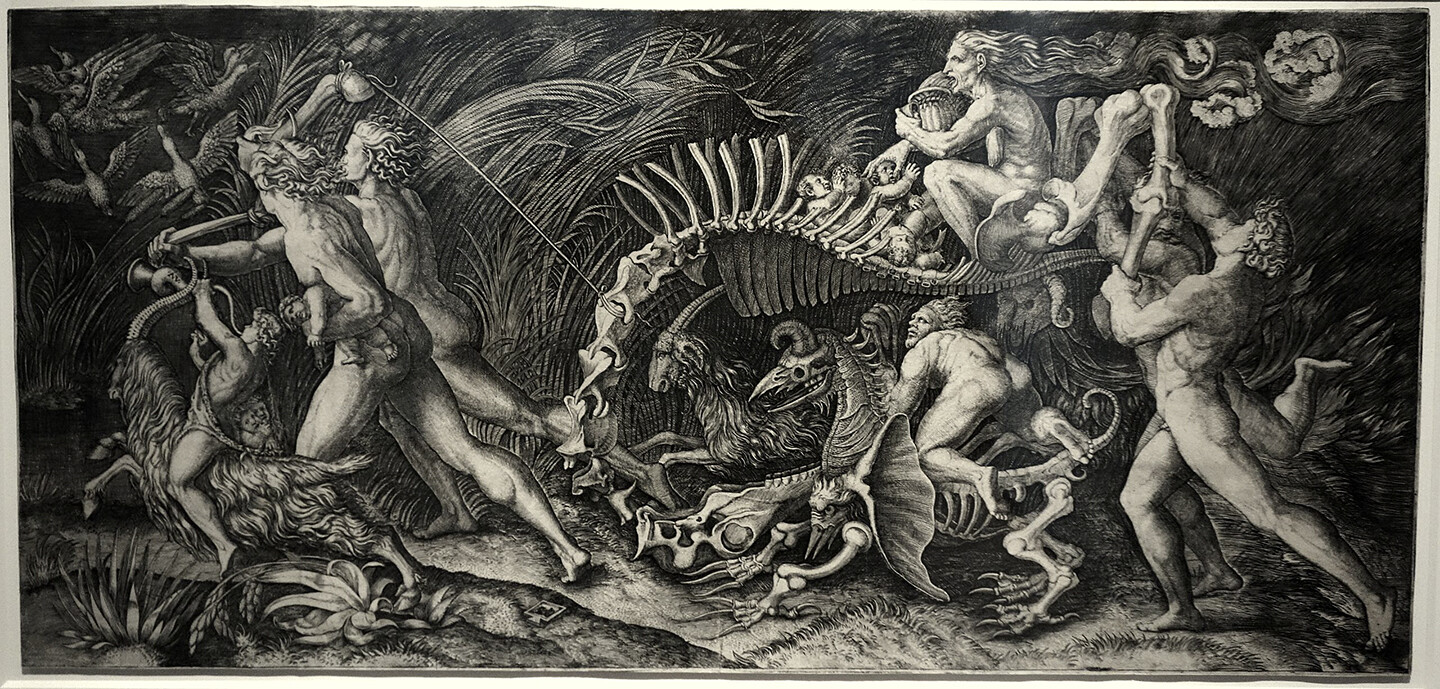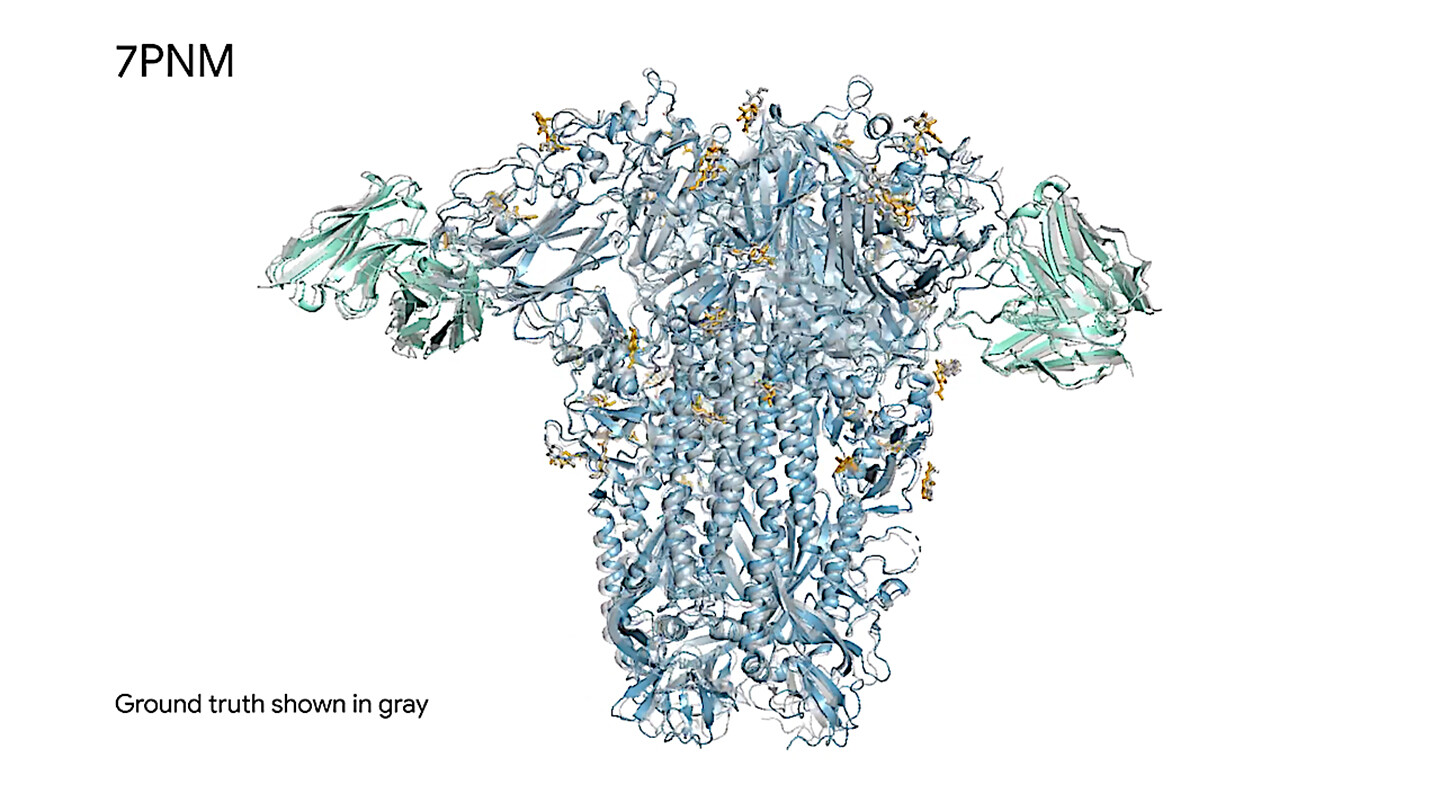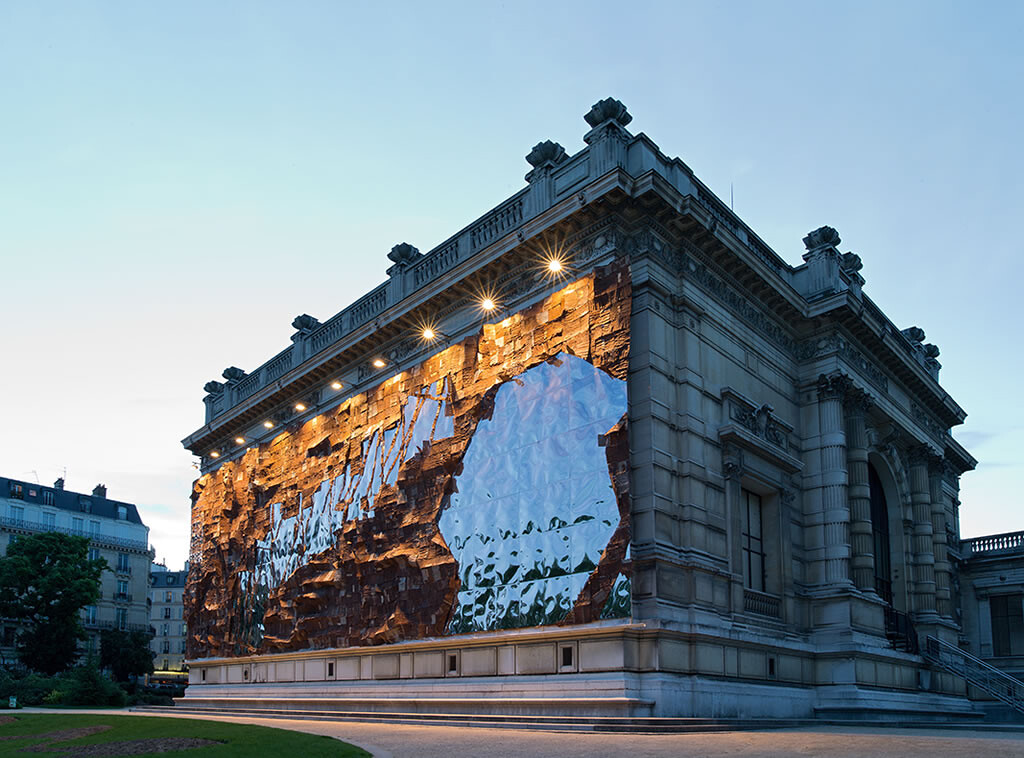Imperial powers will continue competing over resources to maintain the uneven development of the world. Many intellectuals unfortunately share the illusion that these powers will come to the table, listen to each other, work out their differences, and collaborate. But neither culture nor understanding are at stake in this larger power struggle, and those who have not woken up to this will only repeat the “clash of civilizations” cliché by insisting on respect for cultural differences. The East and the West are in fact developing the same plan, the same technology, and the same philosophy of history for domination, and are thus no longer distinguishable in this world process.

Solar eclipse, Sobral, during Sir Arthur Eddington expedition to verify Albert Einstein’s prediction of the bending of light with annotated positions of the stars, F. W. Dyson, A. S. Eddington, & C. Davidson, 1919. European Southern Observatory. CC BY 4.0.
The conspicuous presence of human growth hormone and ill-fitting suits worn by tech-billionaire CEOs in the front row of Donald J. Trump’s presidential inauguration last month speaks volumes about the deep ties between the disruptive ideology of the tech sector and far-right movements in recent decades—a partnership now formally entering the White House. The way disgraced New York City mayor Eric Adams was relegated to a back room after receiving a last-minute invite to the inauguration only adds to the displacement of traditional agents of governance to make room for the new “globalists.” Neoreactionary thought has been particularly influential, appealing to young provocateurs in art and tech turned on by its brand of futurist extremism and targeted anti-humanism spotted with various illiberal tendencies masquerading as pronatalism, market nationalism, and so on. In this issue, Yuk Hui notes that vice president J. D. Vance’s close association with Dark Enlightenment figures such as Peter Thiel and Curtis Yarvin has taken their abject provocations to a new extreme. Hui revisits his 2017 e-flux journal essay “On the Unhappy Consciousness of Neoreactionaries” to analyze how this fitful thrashing of US empire clings to the spoils of globalization while also buckling under its consequences, deepening its unsustainable contradictions.
One radical strand of modern historical thinking could be termed “potentialism”—a form of historicism that is open to unprecedented actualizations and long latencies, to events transcending their conditions, and to processes of becoming that are not always reducible to classical conceptions of class. Now that it has been recaptured and refunctionalized in the service of algorithmic governance by a planetary elite of AI-pushing space invaders, what potential does the concept of potentiality still hold? How to propagate a potentialism of deviation and divergence, of the improbable-but-necessary, in opposition to the techno-dystopian future that is being made today in Silicon Valley?
If centralized AI makes the world a smaller place, tunneling AI will make it larger and more fragmented. In terms of a project for an opacity from below, tunnels are the structures that afford us the condition of opacity. They have limited access points but often lead to a sprawling and decentralized network. To maintain, build, expand, and protect tunnels, one can operate on many planes—from building and adapting new tools that destitute the centralized AI platforms, to nudging national and philanthropic investment programs towards directing funds into the techniques of “private” and decentralized AI.
When Marx talks about the Paris commune, he says, “The form was simple, like all great things.” And I’ve spent a lot of time trying to think about that and other pithy yet amazing kinds of statements that either he or Kropotkin and a few other fellow travelers of the insurrection made about the Commune. Kropotkin says, “It’s the setting for revolution and the means of bringing it about.” So, it’s both the context and the substance. And Marx’s reflections are not very different. Marx is at his most anarchist when he’s talking about the Commune. I began to think about when it is that communes flourish. Well, they flourish whenever the state withdraws.
The exchange implied in the man/woman relationship has a twofold nature: on the one hand, it is an exchange between variable capital and domestic labor; on the other it is an exchange between variable capital and prostitution. On the formal level, it represents itself as an exchange between the wage and domestic labor or prostitution labor and between male worker and housewife or prostitute. However, in reality it is an exchange between variable capital and the labor of domestic work or prostitution and between the houseworker or sex worker and capital, mediated by the male worker. In other words, the exchange of the wage for domestic work (or prostitution) between the male worker and housewife or prostitute is the form of the real exchange that takes place between the houseworker or sex worker and capital.
The formation of a market economy (merchants as masters) widens and expresses something not new—capital—in a very new way. With the supernovas, academic knowledge divorces the church and marries capital. And this new union, this encompassing fate for the world, was not written in the stars (or spontaneous). It’s conceivable that after 1579, a thousand more years might have passed without a break from Aristotle. Civilizations might have risen without any concession to the market economy. West African drumming might have continued its dominance over long-distance communication. It was the second supernova that sealed the deal for the emergence and expansion of the universal market. Giambattista Vico, Adam Smith, Hegel, and ultimately Marx confused this specific form of universal history with the transhistorical history of “mankind.”
Okwui Enwezor’s Triennale articulated the challenges that globalization—and the movements of denationalization, decentralization, and de-hierarchization that arose from it—posed to the writing of modern and contemporary art history. Paris and its “excess of cultural capital” constituted, in Enwezor’s eyes, a fertile ground for revisiting the ethnographic model of otherness and reviving certain lessons from cosmopolitanism in the context of a tense cultural landscape.





